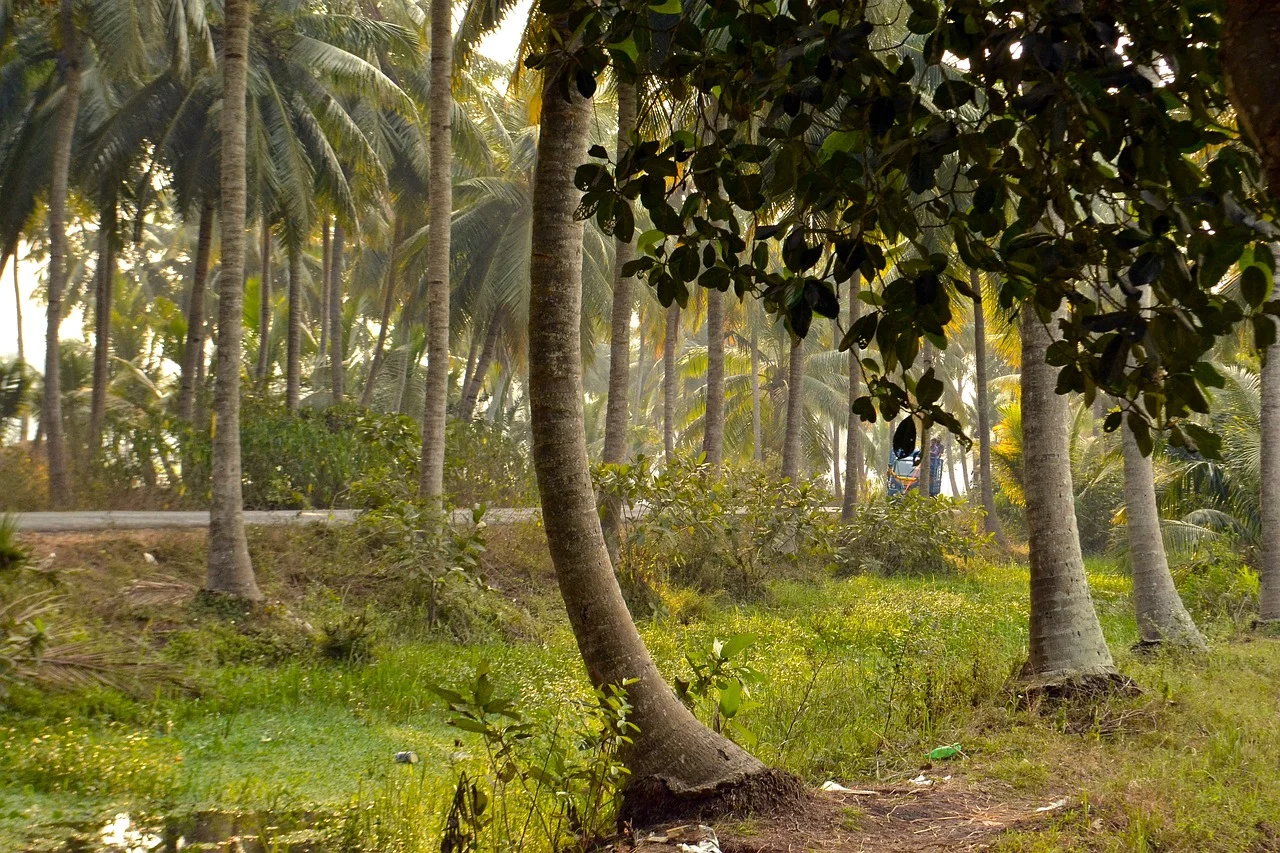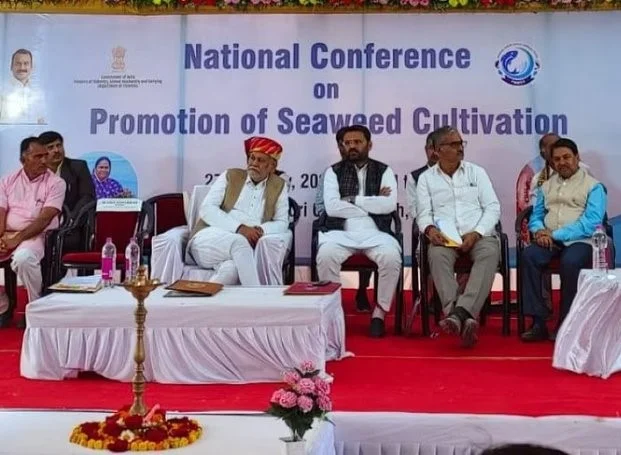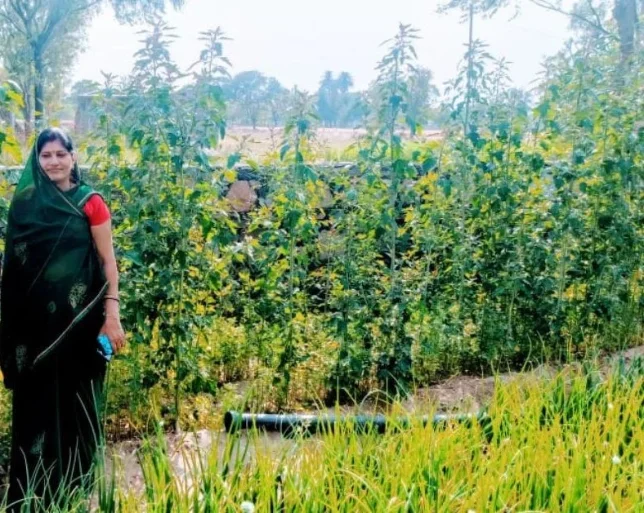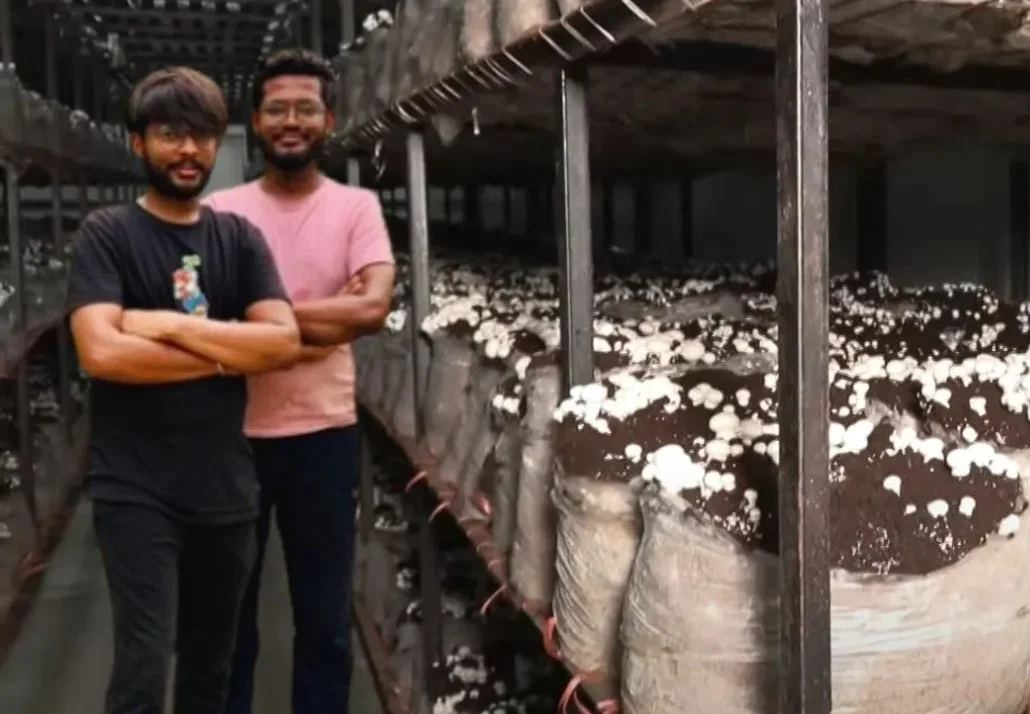You often hear parents proudly talking about their children becoming engineers, doctors, professors, or civil servants. But there are only a few who would say with pride, “My son is a farmer, and I’m proud of him.” That’s what 25-year-old Amogh S Jagthap, an organic farmer, shares.
When Amogh was a child, he spent his weekends happily at a farmhouse his father purchased in 2004. This farmhouse is located about 100 km away from the busy city life, in Mandya district. It’s situated on a 20-acre piece of land.
Despite pursuing a Master’s degree in Business Administration (MBA) from Jain University in Bengaluru, Amogh decided to follow a different path when it came to choosing his career. Instead of going after high-paying corporate jobs, he chose to become a farmer and work the land.
In 2016, he transitioned into organic farming. He cultivates various types of grains, pulses, fruits, and vegetables without using any chemicals. He even grows different kinds of wood.
After accounting for labor and production expenses, Amogh’s farming activities generate an annual turnover of Rs 7-10 lakh.
He grows a variety of fruits including bananas, papayas, mangoes, chikus, jackfruits, star fruits (carambola), Malaysian apples, figs (anjeer), and guavas. In addition, he cultivates grains such as rice, ragi, horse gram (chana dal), and green grams.
In addition to crop cultivation, Amogh is also involved in livestock rearing, dairy farming, poultry, and animal husbandry. These activities help supplement his income.

When asked about his farming techniques, he suggests that the most effective methods are “multi-cropping and integrated farming.”
What do these techniques involve?
Multicropping involves the strategy of cultivating two or more types of crops on the same plot of land all at once, typically during one growing season. This approach serves as a risk management tactic, especially if one of the crops doesn’t thrive as expected.
On a different note, integrated farming aims to ensure that farmers don’t solely rely on growing crops for their income. Instead, they diversify their revenue sources by incorporating additional methods such as raising livestock and selling processed goods produced on the farm.
To illustrate, beyond just selling milk, a farmer could also generate income by selling items like butter, cheese, buttermilk, and cow dung cakes.
Integrated farming refers to the practice of merging various technologies within the framework of traditional farming.
Taking care of the farm
The 20-acre farm located in Mallavali boasts more than 800 tender coconut trees, 1,000 teak trees, 1,000 red sandalwood trees, 1,000 sandalwood trees, and 20 silver trees. On top of that, it grows a variety of fruits, grains, and mixed vegetables. To use water efficiently, the farm employs a method called drip irrigation.

Even the fertilizer is given to the crops using the same drip irrigation system. This special fertilizer, which aids in their growth, is completely natural. It’s created by mixing cow dung, sugarcane extracts, jaggery, and peanut powder. Once mixed with water, this fertilizer solution is delivered to the crops through the drip irrigation pipes.
To keep things running smoothly, the farm has ten full-time workers. Additionally, during the harvest season, Amogh hires temporary labor from outside the farm.

What kind of sales approach does Amogh use?
One of the main reasons Amogh achieves such a high turnover is because of his unique approach. Instead of involving middlemen, he sells his farm products directly to customers.
He’s established a shop named Green Valley by the Malavalli-Mysuru main road. Here, alongside fruits, vegetables, and tender coconuts, he offers honey, cow and buffalo milk, and butter for sale.
Additionally, he organizes daily farmer markets along the main road. These markets are open to other organic farmers as well. They can participate by setting up their own stalls to sell their produce.
As a result, beyond just making profits from his own farm goods, Amogh is also assisting fellow organic farmers in getting fair prices for their crops, all without the involvement of middlemen.

Promoting Organic Farming
“People often have misunderstandings about organic farming because they don’t have enough information about the method. Some believe that organic farming is a difficult process and takes a while to show results. This misconception has led to the widespread practice of chemical-based farming. However, it’s important to recognize that chemical fertilizers and pesticides offer only short-term fixes, while causing harmful long-term effects. For instance, a chemical fertilizer might cost around Rs 2,500, while using locally available cow dung, which is entirely free, is a viable alternative. Why not opt for the more sustainable choice?” he explains.
Concluding his thoughts, he adds, “Over the past two years, I haven’t faced any losses. My goal is to keep refining this approach and demonstrate that agriculture can indeed be a successful venture when approached with a consistent and well-thought-out strategy.”









